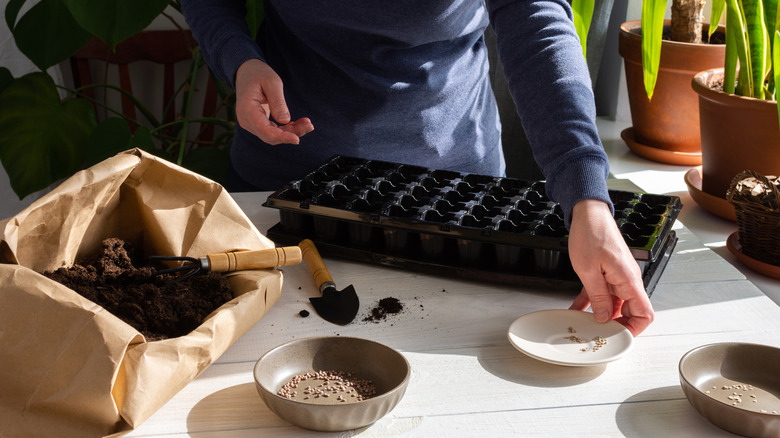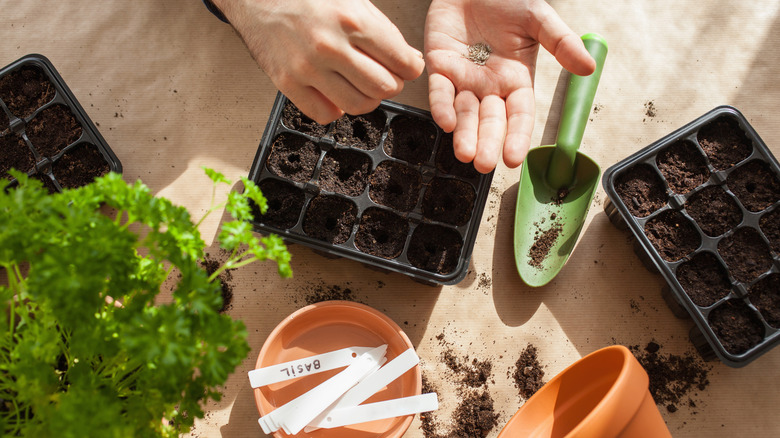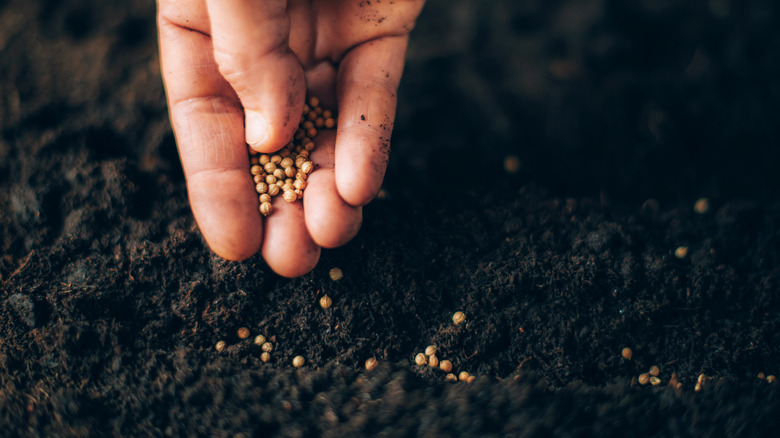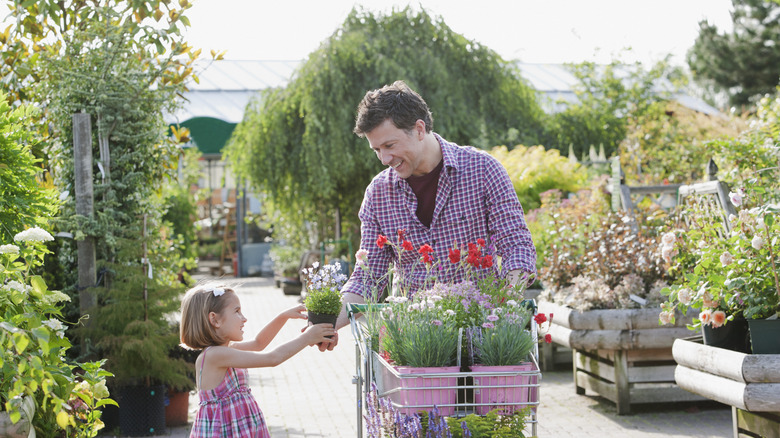Benefits Of Starting Seeds Instead Of Buying Plants
The garden center in spring is a magical place, even if it can be overwhelming for some. Once the seeds are stocked and plant shelves are full, it's tempting to buy one of everything. Ten different herb plants? Yes, please! Fancy packets of specialty flowers to attract hummingbirds? You know it. Do I need this mystery plant that smells nice? Of course! The constant gardener's dilemma is spending $200 on plants and seeds without any idea where to place them.
To avoid the downfall of busting your gardening budget before you ever break ground, make a plan considering the amount of space you have — not what you wish you had. Decide what plants are an absolute must-have for your garden and focus on buying those first. Although both seed packets and seedlings will be available in stores, there are several good reasons to start your own seeds. Later, if you have extra room to fill, you can always buy some greenery for those empty spots.
Seeds are budget-friendly
Although you can often find plants at farm supply stores for less than the major brand-name sellers, it is still significantly cheaper to start your own seeds. For example, one 4-inch tall tomato plant can be around $4 or more. Even the most expensive packets of seeds cost less, and depending on the seller, you could grow about 20 seedlings for less than the price of one. That is probably enough for your garden and plenty to share with friends.
While seeds tend to be inexpensive, you must also consider the equipment required to start them. You'll need a basic seed-starting setup with a shelf, inexpensive grow lights, and a seed-starting medium. If you plan on growing a garden yearly, this small initial investment will save you money in the long run. The cost savings from growing your plants from seed compounds annually, and you get the enjoyment and satisfaction of watching your tiny seedlings grow.
Plants are only available in limited varieties
If you genuinely want to get the best possible flavor from your harvest, starting seeds is the way to do it. Since farms that grow seedlings to sell have to focus on their bottom line, they limit the varieties they grow to those that are hardy enough for transport and sell the best. Thus, if you shop for tomatoes, you will likely see the most common varieties like early girls and better boys — cultivars that have been a staple in home gardens for decades. You may get lucky and find one or two heirloom options, but the varieties available at stores are nothing compared to what you can find in seed catalogs. So if you want to grow something unique like Black Krim tomatoes or Lesya peppers, you'll have to start them from seeds.
Another consideration is that some plants are just not made for transplanting. Common root vegetables like carrots, radishes, and turnips should always be directly sown in the garden. While you can start members of the cucurbit family – squash, cucumbers, and melons – indoors, they do not like to have their roots disturbed and do not transplant well. Buying these as plants and moving them to the garden can be a disappointing experience. It's best to wait until the weather is right and direct sow these seeds. It's incredible how quickly these varieties can grow.
Exceptions to the rule
For nearly every piece of advice in gardening, there is an exception. For example, it is sometimes better to buy a plant than start from seeds. While leafy herbs, including cilantro and dill, are easily grown by scattering seeds in the area you want them to grow, woody herbs like sage, lavender, and rosemary are difficult to germinate and it takes a long time for them to reach the size you see in stores. As such, it's worth shelling out a few bucks to save yourself time and frustration for these options.
You will also want to buy mature plants if you wish to make an immediate impact in your garden. Coneflowers and other ornamentals used in landscaping or containers are best purchased when fully grown. You can buy seeds for pansies, but by the time they reach maturity, they may need to be switched out for weather flowers. Buying the seeds may save you money, but it will also mean you may have to wait a few months for flowers in your garden and planters.



